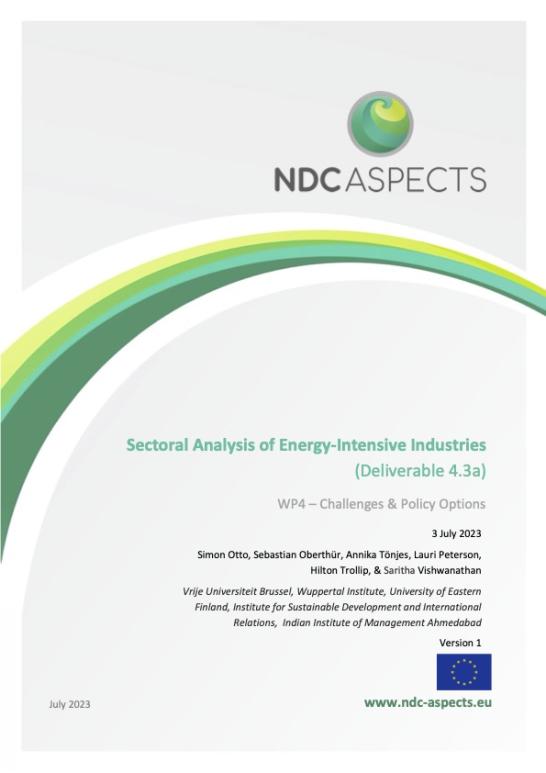This study systematically analyses national sectoral decarbonisation barriers, enablers and policies for 13 major EII producing countries to assess if their respective national policy frameworks are fit for advancing the decarbonisation of EIIs in line with Paris-compatible pathways. The analysis is based on case studies that systematically map national sectoral mitigation barriers, enablers and policies conducted or reviewed by national or sectoral experts. The countries studied include China, the European Union (EU), India, Iran, Japan, Morocco, Nigeria, Norway, Russia, Saudi Arabia, South Africa, Turkey, and the United States (US).
Major barriers to the deep decarbonisation of EIIs continue to be economic challenges (e.g. high investment costs, long investment cycles), lack of targeted policy and international coherence, the limited commercial availability of deep decarbonisation technologies and lack of clean energy and feedstocks. Common enablers are ambitious national climate policies, the domestic potential for clean energy production, international cooperation, and the economic opportunities of industrial decarbonisation. However, our analysis shows that national decarbonisation barriers and enablers are highly context specific and differ significantly across income levels. Whereas decarbonisation in high- income industrialised countries is mainly hampered by the lack of breakthrough technologies and clean energy supply, low- and middle-income countries lack policies and political ambition, but also fiscal and governance capacity to proactive steer the sectoral transformation. At the same time, the latter tend to have high renewable energy potential offering significant opportunities for economic development through green EIIs, or long-lasting experience with state-led industrial policy. To address these barriers and exploit these opportunities comprehensive, timely, proactive and context-specific sectoral policies are needed.
To analyse national frameworks, we review relevant academic literature and indefinity key policy functions and levers that are needed to achieve the deep decarbonisation of EIIs. We then assess the extent to which these are exploited by domestic policies. Our findings show that no country has a sufficiently coherent and comprehensive policy framework in place that can achieve the sectoral transformations needed for the deep decarbonisation of EIIs. Existing policies instead mainly focus on incremental changes and limited emissions reductions, although some notable exceptions exist. Somewhat unsurprisingly, high-income countries, in particular the US, the EU and Norway, are starting to develop some transformative industrial climate policies, but also here crucial policy gaps remain. Overall, we find a particular lack of, and need to strengthen policies focused on demand reduction, material efficiency and circularity, the build-up of public capacity, and the enhancement of international cooperation.


